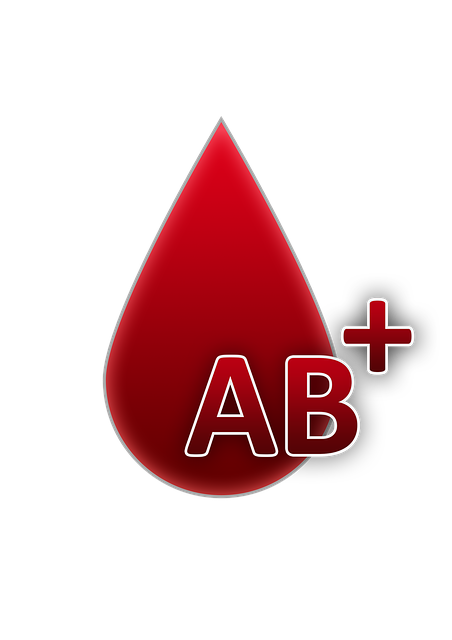In the UK, advanced thyroid blood tests like comprehensive metabolic panels (CMPs) and complete blood counts (CBCs) are crucial for diagnosing iron deficiency anemia. These tests measure hemoglobin and red blood cell levels, helping identify thyroid gland issues related to iron absorption. The UK Advanced Thyroid Blood Test evaluates hormones (TSH, T4, T3), antithyroid antibodies, and TPO antibodies, facilitating the diagnosis of conditions like hypothyroidism or Hashimoto's thyroiditis. Upon analysis, doctors compare results with patient history and symptoms to prescribe treatments like dietary changes, supplements, or further testing, often recommending regular blood monitoring for ongoing management.
Iron deficiency anemia is a common but treatable condition, often diagnosed through blood tests. This comprehensive guide explores the UK Advanced Thyroid Blood Test, a crucial tool for identifying iron deficiency anemia. We’ll walk you through the process, from understanding the condition to interpreting test results and next steps. Learn how this advanced test can help healthcare professionals tailor treatments effectively.
- Understanding Iron Deficiency Anemia and Blood Testing
- The UK Advanced Thyroid Blood Test: What to Expect
- Interpreting Results and Next Steps After the Test
Understanding Iron Deficiency Anemia and Blood Testing
Iron deficiency anemia is a common blood disorder where the body lacks enough iron, an essential mineral responsible for producing hemoglobin, the protein in red blood cells that carries oxygen around our bodies. This can lead to fatigue, weakness, dizziness, and shortness of breath, among other symptoms. Blood testing plays a crucial role in diagnosing this condition. In the UK, advanced thyroid blood tests often include comprehensive metabolic panels (CMPs) or complete blood counts (CBCs), which can detect iron deficiency anemia by measuring hemoglobin levels and red blood cell parameters.
These tests analyze a sample of your blood to check for abnormalities in red blood cells, including their size, shape, and number. A low hemoglobin level or a reduced number of red blood cells could indicate iron deficiency. Advanced thyroid blood tests are particularly important as they can also reveal underlying issues with the thyroid gland, which is linked to iron absorption and overall health. By combining these insights, healthcare professionals in the UK can effectively diagnose and manage iron deficiency anemia, ensuring optimal patient care.
The UK Advanced Thyroid Blood Test: What to Expect
In the UK, the Advanced Thyroid Blood Test is a comprehensive assessment designed to evaluate thyroid function and identify potential issues related to iron deficiency anemia. This test goes beyond basic measurements by analysing various thyroid hormones and antibodies. Patients can expect a series of blood samples taken from their veins, typically requiring only a small prick. The process involves measuring levels of thyroid-stimulating hormone (TSH), thyroxine (T4), triiodothyronine (T3), as well as checking for antithyroid antibodies (ATA) and TPO antibodies. These components work together to provide insights into thyroid health, helping healthcare professionals diagnose conditions like hypothyroidism or Hashimoto’s thyroiditis.
The UK Advanced Thyroid Blood Test offers a detailed look at the body’s thyroid regulation, which is crucial for maintaining energy levels, metabolism, and overall well-being. Accurate results can facilitate timely interventions, such as hormone replacement therapy or immune system treatments, to address thyroid imbalances often linked to iron deficiency anemia.
Interpreting Results and Next Steps After the Test
After your blood sample is analysed, your doctor will receive a report with the iron deficiency anemia test results. They will compare these findings to your medical history and symptoms to make a diagnosis. The UK Advanced Thyroid Blood Test typically looks at several markers including haemoglobin (Hb), haematocrit (Hct), red blood cells (RBCs), and ferritin levels, among others.
If the test results indicate iron deficiency anemia, your doctor will discuss next steps with you. This may include dietary changes to increase iron intake, supplementation, or further testing to rule out other underlying causes. They might also recommend monitoring your condition over time through regular blood tests to track your iron levels and ensure effective treatment.
Iron deficiency anemia is a common yet serious condition, and the UK Advanced Thyroid Blood Test offers a comprehensive way to diagnose its root causes. By understanding the test results, individuals can take informed steps towards treatment, whether it’s addressing thyroid issues or iron supplementation. This advanced blood test serves as a valuable tool in managing and preventing anemia, ensuring better overall health for those at risk.
